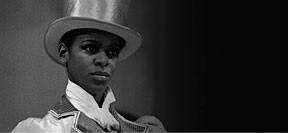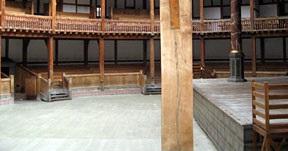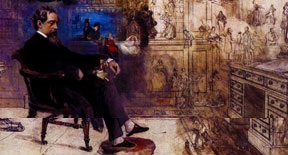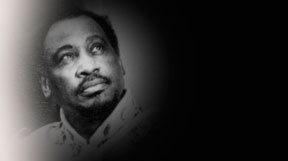Impact
Research in Warwick's English department is both innovative and interdisciplinary. It challenges definitions of the discipline and extends the boundaries of ‘English’ beyond the national or ‘writing’ beyond the literary. Our particular strengths lie in Creative Writing, World Literature, Comparative Literatures, Shakespeare in Performance, and Literary and Cultural Translation.
For many years, we have been taking our research outside the academy and into the world – commitment to public engagement is in our DNA. Our research supports, informs and drives activities in the creative industries, the heritage sector, education and among various professional groups.
Translating Cultures
 Susan Bassnett, Maureen Freely,
Susan Bassnett, Maureen Freely,Michael Hulse and Tony Howard
Multicultural Shakespeare in Britain
 Tony Howard
Tony HowardProfessor
Shakespeare in Performance
 Jonathan Bate, Carol Rutter, Tony Howard,
Jonathan Bate, Carol Rutter, Tony Howard,Stephen Purcell and Paul Prescott
Creative Writing and the Public Sphere
 David Morley, Maureen Freely and
David Morley, Maureen Freely andMichael Hulse Warwick Writing Programme
Re-presenting Britain's Literary History
 Jon Mee, Jacqueline Labbe and Elizabeth Clarke
Jon Mee, Jacqueline Labbe and Elizabeth Clarke The Life and Legacy of Paul Robseson
 Tony Howard
Tony HowardProfessor
Image credits
Photo of Shakespeare's Globe Theatre, London by Wally Gobetz used under Creative Commons BY-NC-ND 2.0. Photo of alphabet by Leo Reynolds used under Creative Commons BY-NC-SA 2.0.
Our impact
Preserving and re-presenting cultural and literary heritage
Our research has informed and underpinned world class and local exhibitions bringing Britain's literary history to new audiences
Contributing to the economic prosperity of the creative industries
Consultancies to theatre companies have enhanced their productions
Inspiring and creating new forms of artistic expression
From theatre productions to exhibitions, our research has led to the development of new ways of interpreting Shakespeare
Enhancing opportunities for creativity and learning among young people
Through educational initiatives at home and around the world
Contributing to continuing professional development
By devising training programmes and running workshops and conferences to enhance professional practice in groups ranging from translators to doctors
Our partners
Adam Matthew Digital
Bignor Park, West Sussex
British Council
British Film Institute
British Museum
Eastbourne Library, East Sussex
Globe Theatre
IGGY
King Edward VI School for Boys, Stratford-upon-Avon
Literary Translation Centre
Misfit Inc.
Modern Records Centre
NHS Health
English PEN
Royal Shakespeare Company
Shakespeare Birthplace Trust
Translators Association
V&A Museum
Warwick Arts Centre
World Shakespeare Festival
Young Vic Theatre
Recent media
PhD researcher Jamie Mackay discusses the global ‘Million Mask March’ in The Beginning is Near (The Ecologist, 12 November 2013)Podcasts and videos
British Black and Asian Shakespeare at the Bristol Shakespeare Festival, July 2013All of the actors we worked with were visibly moved by the opportunity to discover and read and hear in public Robeson's appeals for a time when people of colour would stand centre stage.
— Tom Cornford, Director, on Tony Howard's I have done the state some service, 2010
